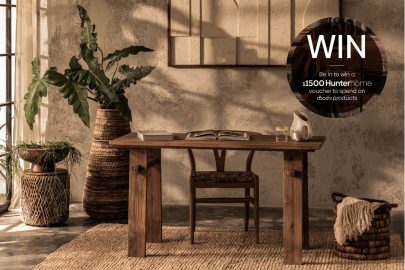Oct 23, 2015 Urban design
Flax grows on the concrete roof of our house, and Virginia creeper covers the insulated concrete walls. All our roof water goes into a tank that supplies the bathrooms, laundry and garden taps, and a solar panel preheats our hot water. You’d think we were responsible greenies, except we’ve got four bathrooms and two and a half kitchens for the five of us who live here. Our desire for sustainability is nicely balanced by our appetite for excess.
Today, “green” buildings with Greenstar ratings are the only kind anyone wants. Quite right, too, you might think. In September last year, the Herald’s “Element” magazine listed in a report on the green office 25 salient features of “the ultimate office”, from a roof garden at the top to a worm farm “for food scraps from staff” at the bottom.
It feels good to think that plants up on the office roof could be purifying air for an army of office workers in the storeys below, while down in the basement worms toil on their lunch crusts and apple cores. The staff could take the worm juice home in their recyclable drink bottles.
But if our roof garden is anything to go by, only the toughest weeds thrive on a roof. It’s windy up there, and the higher the building, the windier it is. Twenty centimetres of planting mix on a desert plateau barely grows anything high enough to mow.
But it costs plenty. Instead of a tin roof on timber framing, you need a concrete roof on concrete supports. It has to carry tonnes of saturated earth on a wet winter night. The waterproof membrane you stick on it is going to be wet for months on end, and even if it doesn’t leak (harder than it sounds), the roots need to be intercepted by a staunch mat to stop them poking holes in the waterproofing. Come summer, the parched ground needs constant watering, preferably by built-in pipes and remote controls. Fail with the watering system and the most you can hope for is a plain of brown grasses. In short, plants don’t like roofs, and roofs don’t like plants.
Why aren’t Garnet Rd and Pt Chevalier Rd great avenues like Franklin Rd?
Most plants don’t like walls much either. A recent fashion is making “green walls” by growing plants in bags or on frames hanging on the walls of buildings. You can see one of these in the atrium of the Westpac building in Auckland’s Britomart. There’s a little “green wall” of mostly dead plants in Freyberg Place, too. Certainly, plants can survive inside buildings, but not without fancy watering and fertilising systems and special lighting to keep them alive.
So if the best place for plants to grow is in the ground, why don’t we plant more of them down there? Look at central Auckland on Google Earth and see the swathe of trees down Greys Ave. If all the roofs on the buildings of the avenue were green, they would still not match the bio-mass of those street trees. Now ask why so many streets of the city are thinly planted. Why aren’t Garnet Rd and Pt Chevalier Rd great avenues like Franklin Rd?
Downtown, at Silo Park, Waterfront Auckland has done a fine landscaping job. But why are the public promenades of the Viaduct Basin treeless where they pass in front of apartment buildings? (A clue: private view protection.)
Worse still, why is there no great urban park at the foot of Quay St extending out over Te Wero Island to the Viaduct bridge? Today, pedestrians heading for the bridge to the Wynyard Quarter thread their way through a big car park, their route marked by painted stripes on the tarseal beside a few potted pohutukawa.
This great public site is utterly wasted. It should be a destination for walkers young and old, not a parking lot. Here should be trees and grass, boat-watchers on park benches, and ordinary souls eating sandwiches on a gentle hill.
Let buildings be buildings, but bring more trees and grass to town, and plant them in the ground.





